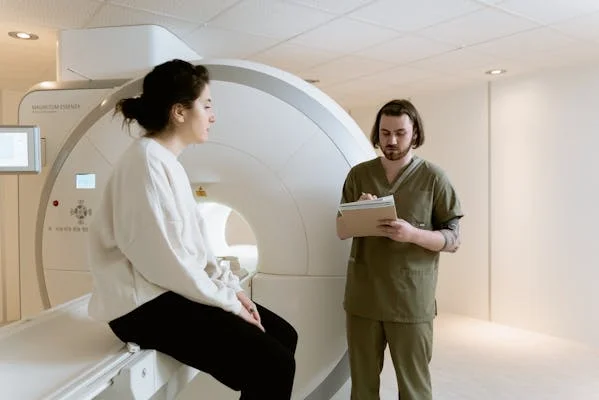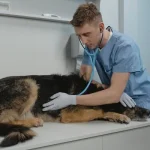Magnetic Resonance Imaging (MRI) is an essential medical diagnostic tool, and the professionals responsible for operating these machines are known as MRI techs. MRI techs play a crucial role in healthcare, helping doctors and specialists diagnose a wide range of conditions. This article will explore what it means to be an MRI tech, the responsibilities they hold, and the training and skills required for the job.
What is an MRI Tech?
An MRI tech, also referred to as an MRI technologist or MRI technologist, is a healthcare professional
trained to operate MRI machines. MRI is a non-invasive imaging technique that uses powerful magnets
and radio waves to create detailed images of the inside of the body. MRI techs are responsible for ensuring
the procedure is done safely and correctly while providing comfort to the patients.
MRI techs work in hospitals, imaging centers, and clinics. They are trained to perform MRIs on various body parts, including the brain, spinal cord, joints, and organs, helping doctors detect abnormalities, diseases, and injuries.
Responsibilities of an MRI Tech
The responsibilities of an MRI tech are multifaceted and involve both technical and interpersonal skills. Some of the core duties include:
1. Preparing Patients for the Procedure
Before any MRI scan, MRI techs explain the procedure to the patient, ensuring they understand what will happen. This may involve asking the patient about any metal implants or pacemakers, as these can interfere with the MRI process. Preparing patients mentally and physically is an essential part of the MRI tech’s role.
2. Operating MRI Machines
MRI techs must be proficient in operating MRI machines, ensuring that images are of high quality and suitable for diagnosis. They adjust settings on the machines, such as the strength of the magnetic field, to capture the necessary images of the body.
3. Monitoring Patient Safety
Since MRI scans use strong magnetic fields, MRI techs must ensure the patient is safe during the procedure. They must be aware of contraindications, such as metal objects that could pose a risk to the patient.
4. Image Quality Control
MRI techs must ensure that the images captured are of sufficient quality for analysis. If the images are not clear or detailed enough, the procedure may need to be repeated.
5. Communication with Physicians
MRI techs often communicate with physicians to discuss the patient’s medical history, which can influence the type of MRI scan that needs to be performed. They may also share findings with the doctor or the medical team.
6. Maintaining Equipment
Regular maintenance of MRI equipment is another responsibility of MRI techs. They must ensure the machines are functioning properly and perform troubleshooting if any issues arise.
Skills and Qualifications of an MRI Tech
Being an MRI tech requires a combination of technical knowledge, attention to detail, and excellent interpersonal skills. Some of the essential skills and qualifications include:
1. Educational Requirements
MRI techs typically need to have completed a two-year associate degree in MRI technology or radiologic technology. Some may also hold a bachelor’s degree in a related field. Formal training programs are available at universities, technical colleges, and healthcare institutions.
2. Certification
In many countries, MRI techs must obtain certification from a recognized professional body. In the United States, the American Registry of Radiologic Technologists (ARRT) offers certification for MRI techs. Certification demonstrates a high level of proficiency and knowledge in the field and is often required by employers.
3. Knowledge of MRI Technology
MRI techs must have in-depth knowledge of MRI equipment and how to use it. They should understand how to adjust settings to achieve the best possible images and how to troubleshoot any issues that arise with the machines.
4. Attention to Detail
Since MRI imaging is a precise and technical process, MRI techs must be highly detail-oriented. They must ensure that the images captured are clear and free from distortion.
5. Patient Care and Communication Skills
MRI techs must be able to communicate clearly with patients, ensuring they feel comfortable and informed throughout the procedure. Empathy and the ability to calm anxious patients are essential qualities for an MRI tech.
6. Physical Stamina
MRI techs often work in fast-paced environments and may need to assist patients who have difficulty moving. Physical stamina is necessary to perform these tasks efficiently.
Training and Education for MRI Techs
Training to become an MRI tech typically involves completing a formal educational program and obtaining certification. Many MRI techs begin their careers by completing a radiologic technology program, followed by specialized training in MRI procedures.
Educational Pathways
To pursue a career as an MRI tech, one can follow two primary paths:
- Radiologic Technology Programs Most MRI techs start by completing a radiologic technology program, which usually lasts about two years. This program provides foundational knowledge in anatomy, patient care, and medical imaging techniques. After completing the program, students can then specialize in MRI technology.
- Direct MRI Technology Programs Some institutions offer dedicated MRI technology programs, which provide in-depth training on MRI machines, imaging techniques, and patient care specific to MRIs. These programs may take one to two years to complete and include both classroom instruction and hands-on clinical training.
Certification and Licensure
In the United States, MRI techs must obtain certification to work in the field. The ARRT offers certification exams that test knowledge and skills in MRI technology. To be eligible for certification, candidates must complete an accredited MRI or radiologic technology program and pass the certification exam.
Some states may also require MRI techs to obtain state licensure, which often involves passing an additional exam or completing continuing education courses.
Continuing Education
MRI techs must stay up-to-date with advancements in MRI technology and healthcare practices. Many certification boards, including the ARRT, require MRI techs to complete continuing education courses to maintain their certification.
Job Outlook for MRI Techs
The job outlook for MRI techs is positive, with the demand for healthcare professionals, especially in imaging, continuing to rise. As the population ages and medical imaging becomes more advanced, MRI techs will play an increasingly important role in diagnosing and treating various conditions.
Salary and Benefits
The salary for MRI techs varies based on location, experience, and education level. According to the U.S. Bureau of Labor Statistics (BLS), the median annual wage for MRI technologists in the United States was approximately $75,000 in 2023. MRI techs may also receive benefits such as health insurance, retirement plans, and paid time off.
Conclusion
MRI techs are essential members of the healthcare team, providing vital diagnostic images that help physicians make informed medical decisions. Their role is both challenging and rewarding, requiring a combination of technical expertise, attention to detail, and excellent patient care skills. As the healthcare industry continues to evolve, the demand for skilled MRI techs is expected to remain high.
Are you ready to embark on a career that combines healthcare and technology, playing a crucial role in patient diagnosis?





